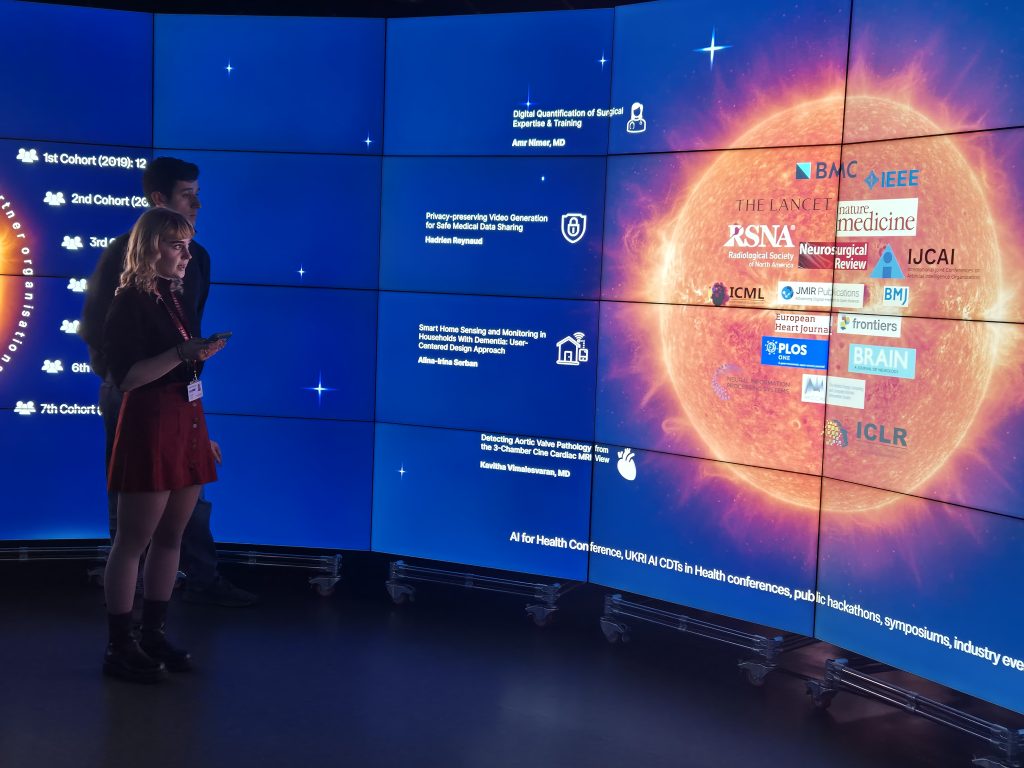
The AI4Health Public Engagement Showcase brought together creativity, collaboration, and communication, key ingredients in bridging the gap between cutting-edge AI research and the public it serves. Held at the Data Observatory at Imperial College London, the event challenged PhD researchers to present their work in a way that would engage not only academics but also members of the public, industry leaders, and policymakers.
The scenario was ambitious: imagine a visit from Wes Streeting, the UK’s Secretary of State for Health and Social Care, alongside a representative from a leading Silicon Valley technology company, NHS patients, and even family members, all eager to understand how AI4Health is shaping the future of healthcare.
Three teams – Explorer, Everest, and Patagonia – rose to the challenge, each delivering an imaginative take on how to communicate the AI4Health mission and impact.
Team Everest took home the top prize with their striking “AI4Health Tube Map” presentation. Using the familiar design of the London Underground, they mapped AI4Health’s diverse research areas as interconnected lines, from scientific impact and AI in healthcare to graduate outcomes and collaborations. Their creative approach not only made complex ideas visually engaging but also underscored how AI4Health connects multiple disciplines and sectors to move healthcare forward.
Team Explorer impressed the audience by imagining a future 10-year space exploration roadmap for AI and healthcare. Their “journey through innovation” explored how advances such as surgical robotics, remote operations, and ambient voice technologies could revolutionise clinical practice, all linked to the UK’s long-term health strategy.
Team Patagonia showcased AI4Health’s global impact through data storytelling. They demonstrated that citations of AI4Health research have increased by more than 80% over the past two years, driven by interdisciplinary collaborations and world-class training.
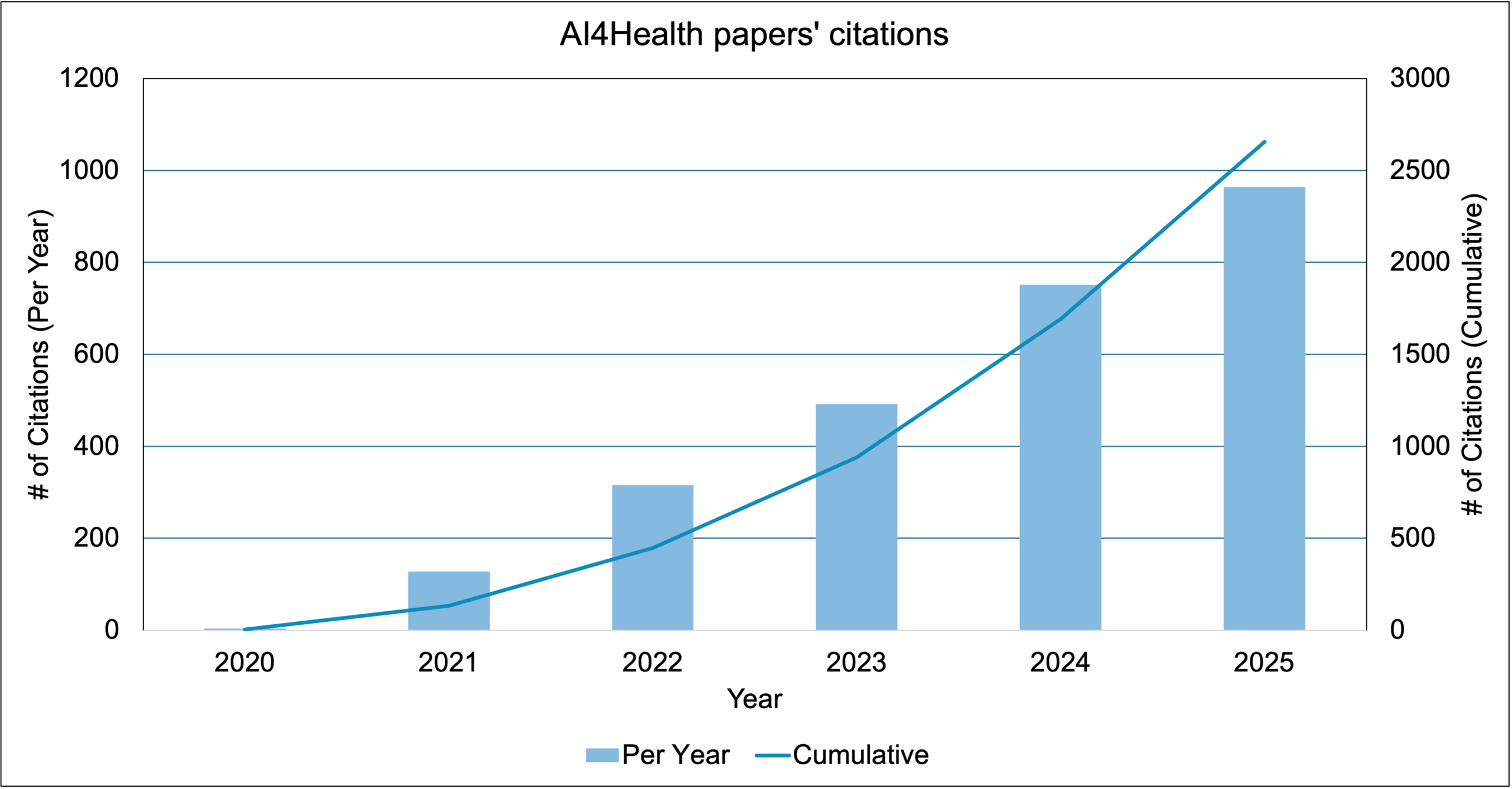
Data That Tells a Story
Team Patagonia’s visuals illustrated the growth of AI4Health’s research excellence.
The first chart showed a dramatic rise in publications and citations, reflecting how AI4Health researchers are accelerating innovation and knowledge transfer across healthcare and technology sectors.
The second visual compared h-index distributions across AI4Health PhD cohorts (2019–2023), showing how each new generation builds upon the achievements of earlier ones, strengthening the Centre’s reputation for impactful, high-quality research.
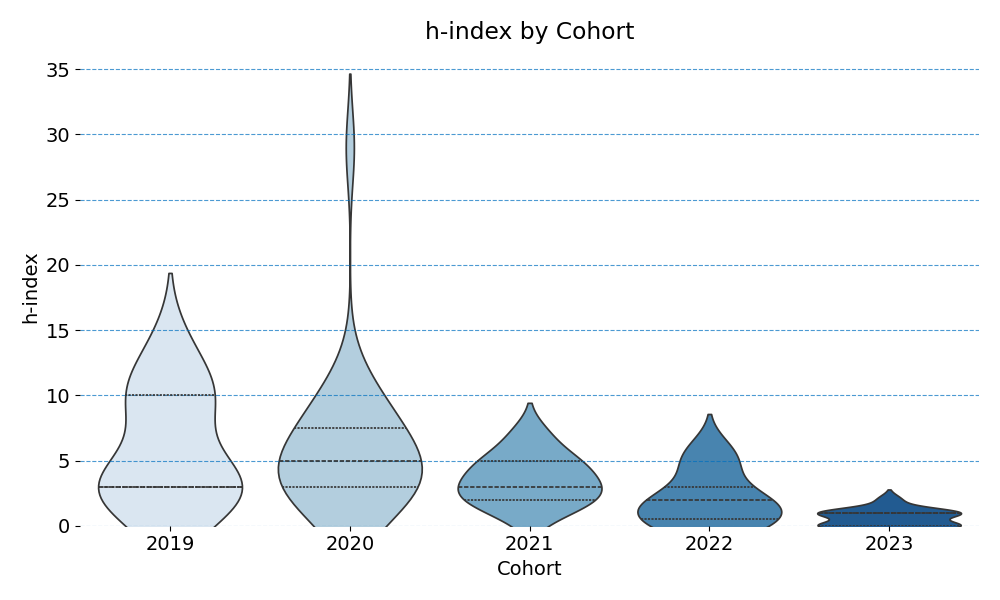
The PhD researchers presenting for each team were:
- Team Everest (L-R): Piotr Blaszyk, Georgia Del Missier, Oliver Nicholls, Dhruv Gupta
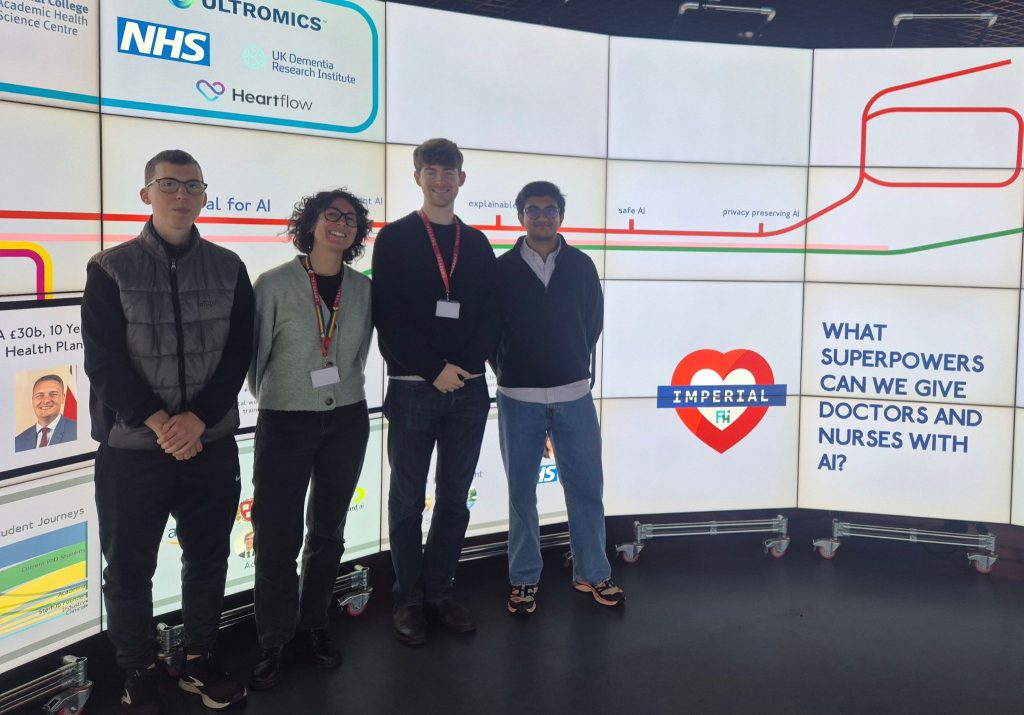
- Team Explorer (L-R): Dillon Vijaya, James Paltridge, Andreas Simson, Ania Balcer, John Bonnici
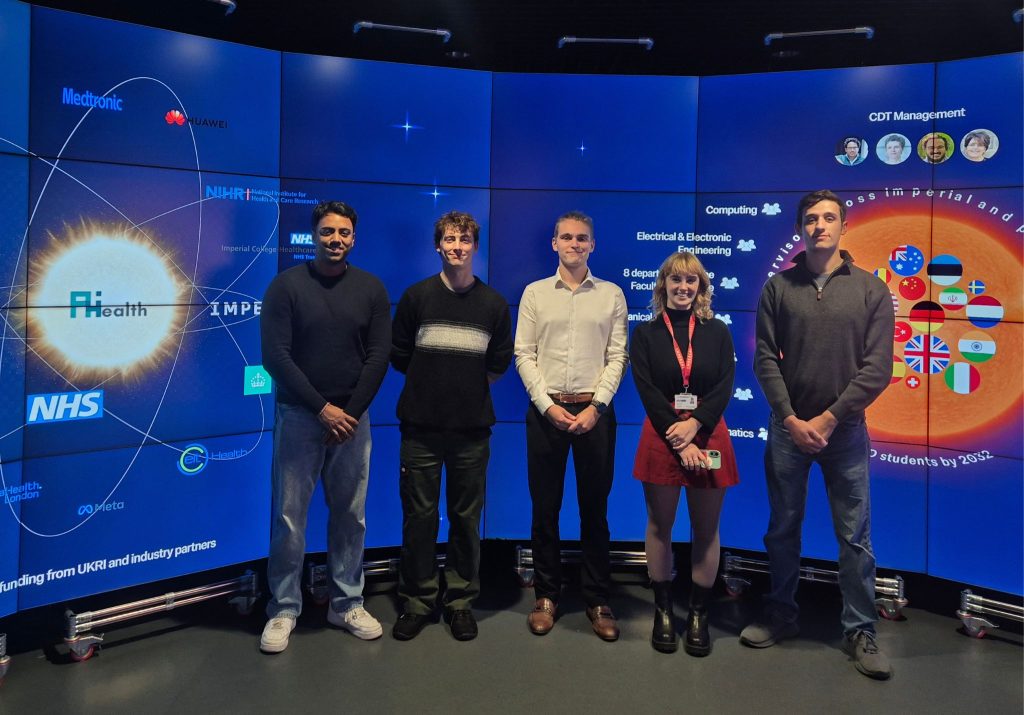
- Team Patagonia (L-R): Ibrahim Nawaz, Dr Sadaf Sohrabi, Paul Poehl
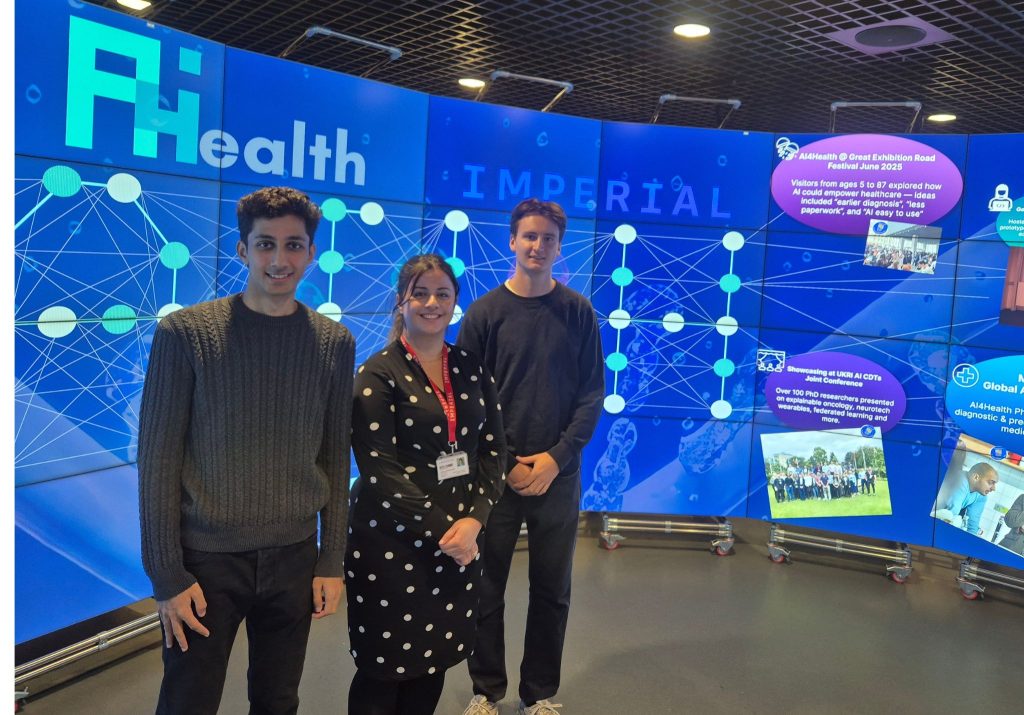
This research was supported by UK Research and Innovation. UKRI Centres for Doctoral Training in AI for Healthcare grant number EP/S023283/1, UKRI AI Centre for Doctoral Training in Digital Healthcare grant number EP/Y030974/1 and The School of Human and Artificial Intelligence.

